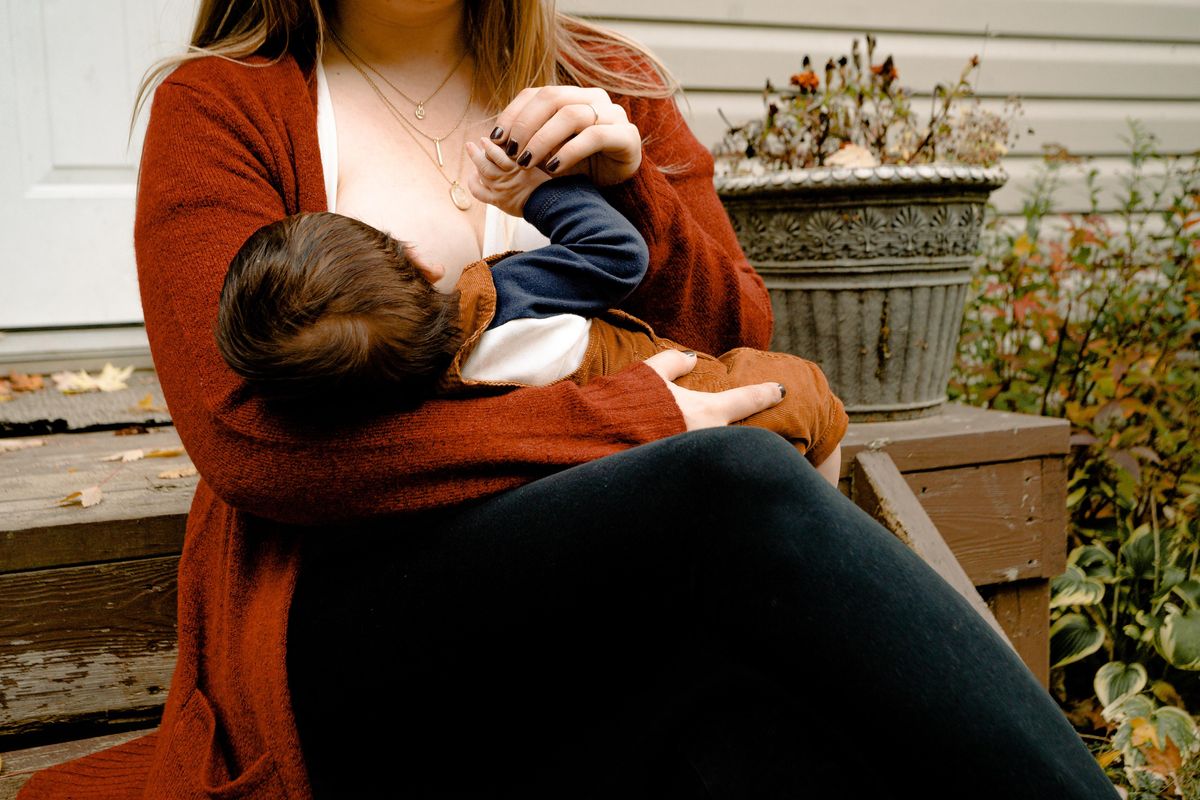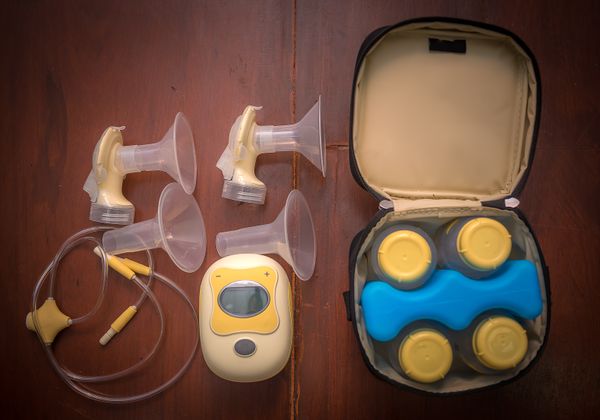Q:
I'll be breastfeeding during flu season. What happens if I get sick?
A:
First, get a flu vaccine to protect yourself against this highly contagious disease. When you're breastfeeding, it's safe for you to get either the inactivate flu vaccine (the injection form) or the attenuated vaccine (the nasal spray form). There is no evidence that either form affects the safety of breastfeeding for you or your infant.
We know, however, that flu isn't the only infectious disease you need to focus on when it comes to your and your baby's health. The U.S. Centers for Disease Control and Prevention (CDC) notes that all vaccines, other than the smallpox vaccine, are safe while you're breastfeeding. The added benefit of some of these vaccines is that they can also provide some protection to your baby because they are designed to protect against bacterial infections that may pass though your breast milk.
Breastfeeding is one of the best ways to get your infant off to a healthy start. Even if you only nurse your baby for a few days or weeks, that early milk, called colostrum, provides an important source of antibodies to protect against disease, as your baby's own immune system develops during his or her first year. Breastfeeding also has a number of benefits for you, including making it easier to lose those pregnancy pounds (you burn up to extra 500 calories a day nursing), returning your uterus to its pre-pregnancy size and reducing postdelivery bleeding.
But what if you do get sick while breastfeeding? It's important in most cases to continue breastfeeding because your baby will get protection against your illness from antibodies in your breast milk. In fact, with most viral infections, such as colds, sore throats and stomach viruses, you are infectious but starting to produce antibodies before you have any symptoms. So if you don't interrupt breastfeeding your baby gets protection both before you knew you were sick and throughout your illness. And don't worry; these common viruses are not passed to your baby through your milk.
If you really aren't up to nursing your baby for a feeding or two, ask if someone else can give your baby a bottle of expressed breast milk. You also should check with your health care provider to see what medications are available to help ease your symptoms, as many over-the-counter cold and flu remedies are safe for women who are breastfeeding. In the meantime, make sure to empty your breasts by nursing or pumping regularly so that they don't become hard and engorged as this can predispose a woman to develop mastitis, a painful breast infection. And, get some extra rest. If you do take a cold medicine, it could have drying effects, which are good for a drippy nose but mean you need to drink extra fluids so that your milk supply doesn't decrease.
And what if your baby gets sick? Breastfeeding is all the more important to continue if your baby is sick. In fact, you will need to breastfeed more often so your baby can get the fluids and nutrients he/she needs to replace those lost due to illness. Breastfeeding, always comforting to your baby, is even more so when he or she is sick. If your baby has a cold nursing him or her in an upright position may be helpful. Of course, you should talk to your baby's health care provider when your baby is ill if you have questions especially if he or she has a fever, diarrhea, is vomiting or won't breastfeed.
Make sure that you take extra care to wash your hands well (ideally, for the length of time it takes to recite the "ABCs" in your head) when any family member is ill. Oh, and one more thing—don't forget to get the rest of your family vaccinated so they don't bring the flu home and increase the risk of you or the baby getting it.







